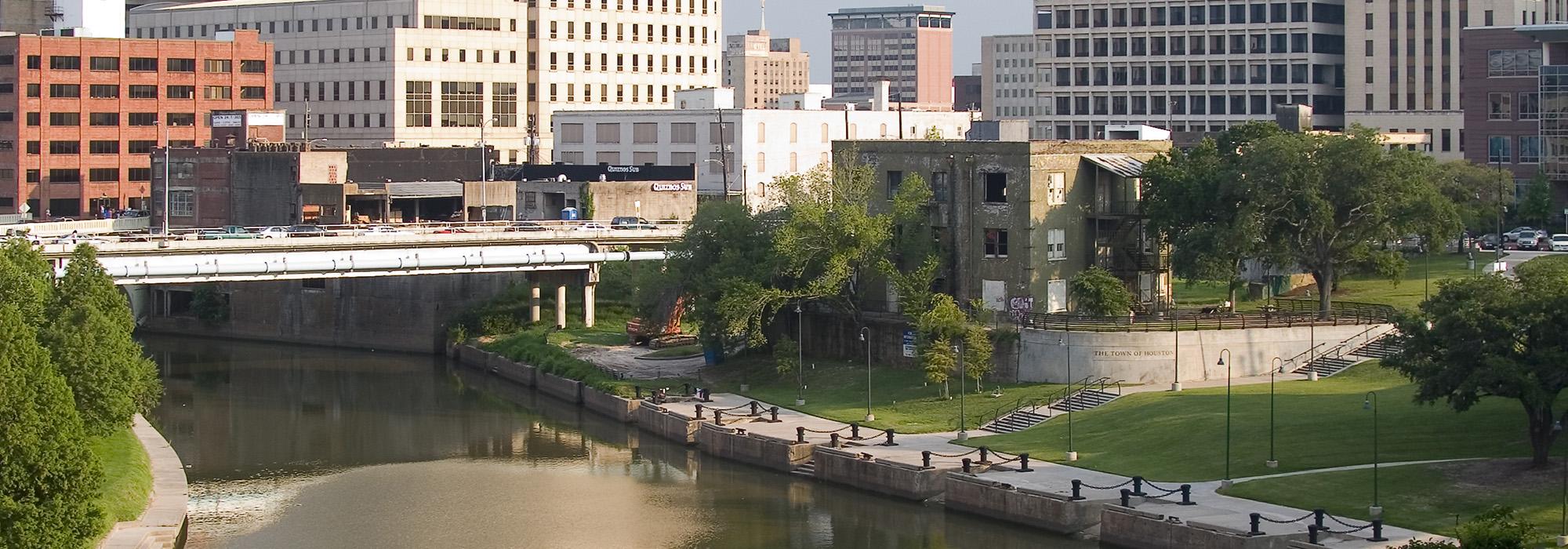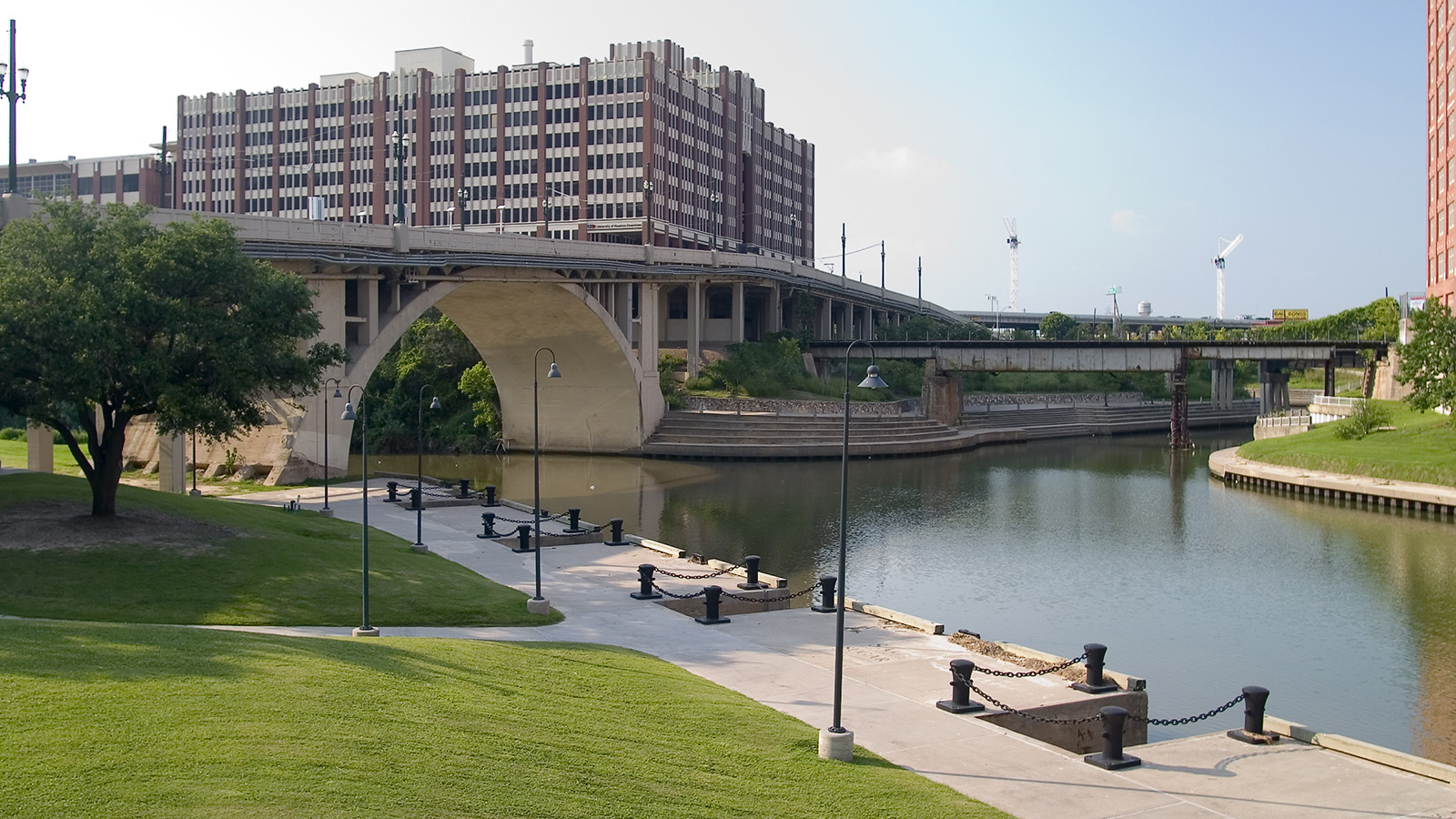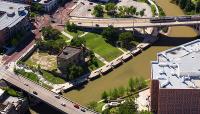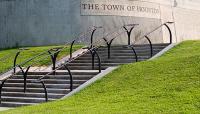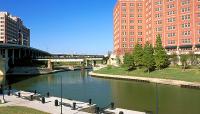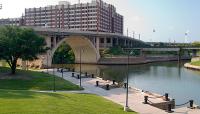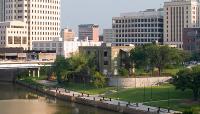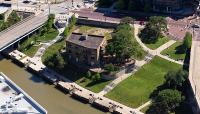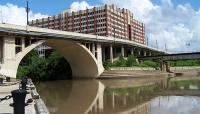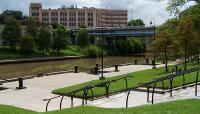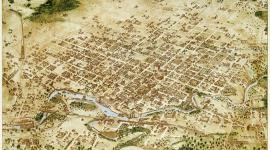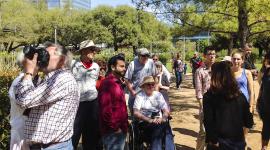Landscape Information
This 1.76-acre park on the south bank of Buffalo Bayou commemorates the founding of Houston in 1836. Lying at the confluence of Buffalo and White Oak Bayous, this location served as a natural turning basin for large boats navigating from Galveston and the Gulf of Mexico. As shipping traffic to the nascent city increased, the bayou junction was designated Houston’s official port in 1841. Wharves were established and the city’s commercial center grew to encompass the area surrounding the port. In 1914, dredging of Buffalo Bayou for the Houston Ship Channel from the Gulf of Mexico resulted in the relocation of the turning basin four miles to the east, precipitating a protracted evacuation of waterborne commerce from the downtown commercial district.
In 1966, the Chamber of Commerce sought to revitalize the area with the construction of a waterfront park on a 4,000-square-foot parcel donated by the Southern Pacific Railroad. Dedicated a year later, the bi-level park comprised a semicircular lawn that abutted the existing concrete wharf, a few trees, and a curvilinear promenade extending over the river on stilts. Flooding in the 1970s led to the park’s ruination, and the site was revitalized in 1999. Led by landscape architect Kevin Shanley, SWA Group developed an entry plaza that frames significant views and grassy terraces that extend from street level to the river. Arcing walkways lead to an embarcadero with bollards, benches, and concrete paving inscribed with text that relays the history of the site. The park was extended westward to connect with Sesquicentennial Park, both of which are part of the 160-acre Buffalo Bayou Park, led by the Buffalo Bayou Partnership.



